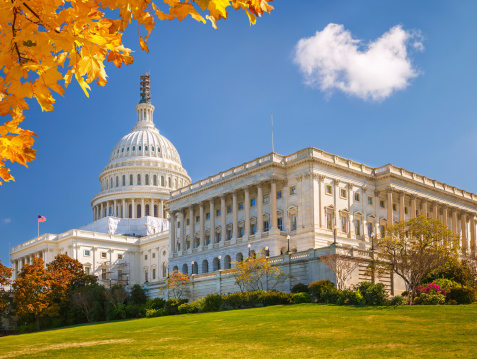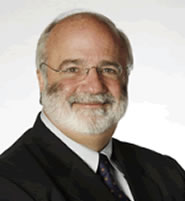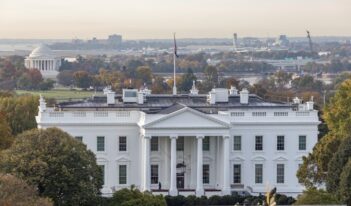
How the resurgence of progressivism will produce improved regulatory outcomes.
Americans have a noted ambivalence about their relationship to government. At times, government is used as the vehicle to achieve the collective values of the country, providing a range of services and protections necessary for citizens to lead productive and useful lives. At other times, government is feared as too big and too intrusive. Nevertheless, we may be on the cusp of returning to a period in which government is seen as a positive force for the public good. The path forward lies in making a commitment to a democratic polity over blind adherence to the precepts of a capitalistic economy, especially those advanced during the last decades of neoliberalism.
Admittedly, capitalism has proven its worth. Competition can promote economic growth, stimulate innovation, and generate economic wealth for both individuals and the country as a whole. Capitalism is not competitive, however, when the rules of the game distort the economic playing field and then circumscribe both liberty and equality. Nobel laureates such as Paul Krugman and Joseph Stiglitz, and legal scholars such as Judge Richard Posner, among many others, have demonstrated as much. Unfortunately, over the last generation, capitalism, American-style, has resulted in reduced social mobility as well as increased income and wealth inequality. Our political economy therefore demands a counter-narrative to neoliberalism.
In neoliberal world, markets are the starting point and government exists only to correct market flaws, which in the more extreme versions of neoliberalism seldom exist. Instead, we argue in our recently published book, Achieving Democracy: The Future of Regulation, that democracy must take precedence over capitalism. Democracy is the starting point because it is through democratic process that we balance the country’s commitments to both markets and government. After all, markets do not function without government support and protection.
Neoliberals have wrongly inverted the relationship between capitalism and democracy. History reveals the United States is a “city on upon a hill” because the nation has recognized, not without many fits and starts, that the preservation of liberty requires a balance between limitations on government and the reliance on government to expand personal freedom by policing markets and helping individuals to achieve their fullest potential. During periods of positive government, the country built a physical and financial infrastructure, protected citizens from the abuses of corporate and industrial power, expanded a middle-class consumer society, and granted political and civil rights for previously disenfranchised or disadvantage persons. Those gains have eroded during the most recent neoliberal period.
Today, any modern, liberal, democratic government reflects a balance between markets and government. Different countries choose different mixes depending on their political and constitutional traditions and values. No liberal democracy manages the political economy by markets alone, nor do any manage it by the government as a whole. In the U.S., public policy is about what mixture of market and government intervention in various economic sectors and social activities best serves traditional American political values.
To determine whether a legislative or regulatory proposal best serves these values and contributes to the public good, the key question is whether a proposed intervention furthers democracy and competitive capitalism. If an analysis of public policy indicates that the answer is “yes,” then there is a good chance that the public interest may be furthered. Of course, there may be a conflict between democracy and capitalism given unfair distributions of wealth, resources, and political access.
Because wealth influences the political process, it inevitably will be used to bend the rules in favor of moneyed interests. The attenuation of the poor’s access to the political process exacerbates the capture of government policy. For neoliberals, economic efficiency—wealth—nearly always trumps democracy. Yet this policy preference is both unwarranted and oblivious to the impact on our political economy.
When markets work well, economic and political virtues can be achieved. However, the very principles that enable markets to function also encourage market actors to cheat. It is economically rational for firms to try to eliminate competition to dominate particular market space. Markets are not machines that automatically advance society’s overall interests all on their own. Government is needed to ensure markets operate competitively and fairly.
We do not exonerate government entirely. There is plenty about government to criticize. While it is time for a return to a progressive spirit in the United States, government will be not be effective in promoting a reasonable balance between markets and democracy unless we find new ways of doing the government’s business. A pragmatic government is one that works and, for understandable reasons, government at present is not sufficiently experimental and practical. Yet if the future of democracy is to be ensured, progressive government must make some changes. And the time to do so is now.





